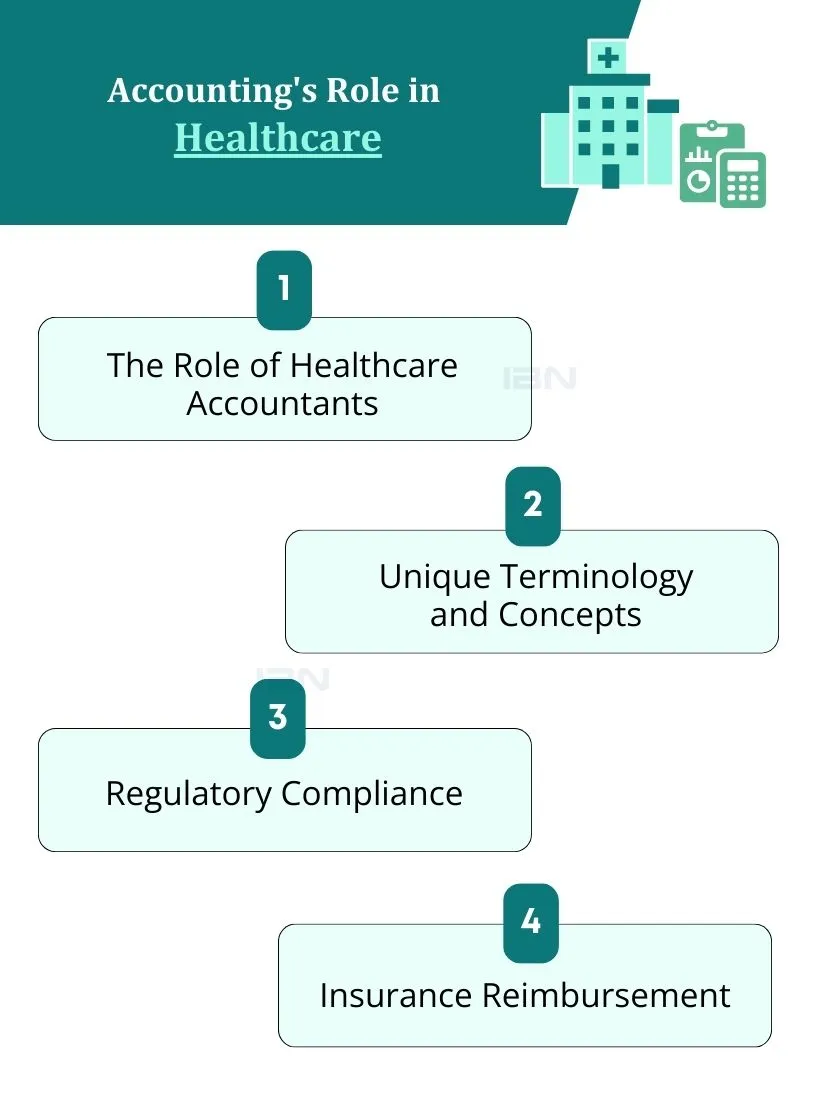

Healthcare accounting is a specialized field that requires a deep understanding of financial principles and the unique complexities of the healthcare industry. With ever-changing regulations, intricate billing processes, and the need for accurate reporting, healthcare accountants play a crucial role in ensuring healthcare organizations' financial stability and compliance. In this article, we will explore the key factors that make healthcare accounting unique and delve into the challenges and opportunities it presents.
Table of Contents
- 1. Accounting's Role in Healthcare Interconnectedness
- 2. The Intersection of Finance and Healthcare
- a. The Role of Healthcare Accountants
- b. Unique Terminology and Concepts
- c. Regulatory Compliance
- d. Insurance Reimbursement
- 3. The Complexities of Healthcare Billing
- a. Fee-for-Service vs. Value-Based Care
- b. Third-Party Payers and Contract Negotiations
- c. Bad Debt and Uncollectible Accounts
- d. Revenue Recognition and Healthcare Services
- 4. Why Healthcare Accounting with IBN Tech?
- 5. Conclusion
- 6. FAQs
Accounting's Role in Healthcare Interconnectedness
A key role of financial accounting in the healthcare industry is to facilitate interconnectedness. Specifically tailored to the healthcare sector, accounting involves managing, analyzing, and interpreting financial data to facilitate seamless collaboration among various stakeholders. The infographic image illustrates the interconnectedness of accounting in the healthcare industry. It demonstrates the pivotal role of accounting in enabling financial planning, ensuring compliance, controlling costs, preventing fraud, and facilitating data-driven decision-making within the healthcare sector.

The Intersection of Finance and Healthcare
The Role of Healthcare Accountants
Healthcare accountants are responsible for managing and analyzing the financial data of healthcare organizations. They work closely with healthcare providers, insurance companies, and regulatory bodies to ensure accurate financial reporting and compliance with industry standards. Unlike traditional accountants, healthcare accountants must have a deep understanding of healthcare policies, medical coding, and reimbursement methodologies.
Unique Terminology and Concepts
Healthcare accounting introduces a whole new set of terminologies and concepts that are specific to the industry. From diagnostic-related groups (DRGs) to relative value units (RVUs) and capitation payments, healthcare accountants must be well-versed in these specialized terms to interpret and analyze financial data accurately.
Regulatory Compliance
One of the biggest challenges in healthcare accounting is navigating the complex web of regulatory compliance. Healthcare organizations must adhere to numerous regulations, such as the Health Insurance Portability and Accountability Act (HIPAA) and the Affordable Care Act (ACA). Healthcare accountants play a vital role in ensuring compliance with these regulations, as any violation can lead to severe financial penalties and reputational damage.
Insurance Reimbursement
Unlike other industries, healthcare relies heavily on insurance reimbursement for revenue generation. Healthcare accountants need to understand the intricacies of the insurance billing process, including coding, claims submission, and reimbursement methodologies. They must ensure accurate documentation and coding to maximize reimbursements while staying compliant with insurance company policies and government regulations.
The Complexities of Healthcare Billing
Fee-for-Service vs. Value-Based Care
Healthcare accounting faces the challenge of transitioning from the traditional fee-for-service model to value-based care. Fee-for-service reimburses healthcare providers based on the number of services rendered, while value-based care focuses on the quality and outcomes of care. Healthcare accountants must adapt their financial systems to capture and measure value-based metrics, which often involve significant changes in billing and reporting processes.
Third-Party Payers and Contract Negotiations
Healthcare organizations deal with a multitude of third-party payers, including insurance companies, government programs, and managed care organizations. Each payer has its own reimbursement rates and contractual agreements. Healthcare accountants are involved in contract negotiations, ensuring favorable terms and accurate financial projections. They must also monitor payment trends, denials, and reimbursement rates to identify financial risks or opportunities.
Bad Debt and Uncollectible Accounts
Healthcare accounting faces the challenge of managing bad debt and uncollectible accounts. Due to the complexity of insurance reimbursement and patient responsibilities, healthcare organizations often need help in collecting payments. Healthcare accountants must establish effective revenue cycle management strategies, such as implementing patient payment plans and pursuing collections. They also need to accurately assess the monetary impact of uncollectible accounts and factor them into financial reporting.
Revenue Recognition and Healthcare Services T
The unique nature of healthcare services poses challenges in revenue recognition. Healthcare organizations provide services over an extended period, making it necessary to recognize revenue over time rather than at the point of service. Healthcare accountants must comply with accounting standards, such as the Generally Accepted Accounting Principles (GAAP) and the Financial Accounting Standards Board (FASB) guidelines, to accurately recognize revenue and ensure financial transparency.
Why Healthcare Accounting with IBN Tech?
IBN Tech offers comprehensive support to healthcare organizations in navigating the intricacies of healthcare accounting. By leveraging their expertise, advanced technologies, and tailored solutions, IBN Tech is poised to help healthcare providers achieve financial stability, compliance, and success in an ever-evolving healthcare landscape. Also, commitment to data security and confidentiality ensures that sensitive financial information is handled with the utmost care and compliance with privacy regulations.
Conclusion
Healthcare accounting is a specialized field that requires a unique set of skills and knowledge. From managing complex billing processes to ensuring compliance with regulations, healthcare accountants play a critical role in the financial stability and success of healthcare organizations. By understanding the intricacies of healthcare financing, staying updated with industry changes, and adapting to evolving reimbursement models, healthcare accountants contribute to the efficient and sustainable delivery of healthcare services.
Accounting Healthcare FAQs
- Q.1. What are the primary responsibilities of healthcare accountants?
-
Healthcare accountants are responsible for managing financial data, ensuring compliance with regulations, analyzing financial statements, budgeting, and forecasting. They also handle insurance reimbursement, contract negotiations, and revenue cycle management.
- Q.2. What challenges do healthcare accountants face in revenue cycle management?
-
Healthcare accountants face challenges such as insurance denials, uncollectible accounts, and managing the transition to value-based care. They must implement effective strategies to optimize revenue collection and mitigate financial risks.
- Q.3. How can healthcare accountants contribute to financial stability?
-
Healthcare accountants play a crucial role in financial stability by providing accurate financial data, identifying cost-saving opportunities, managing revenue cycles, and ensuring compliance. They help healthcare organizations make informed financial decisions and achieve long-term sustainability.
- Q.4. What skills are essential for healthcare accountants?
-
Healthcare accountants need a strong foundation in accounting principles, financial analysis, and compliance regulations. They should also possess excellent analytical skills, attention to detail, and the ability to interpret complex financial data. Continuous learning and staying updated with industry changes are vital for success in this field.
















